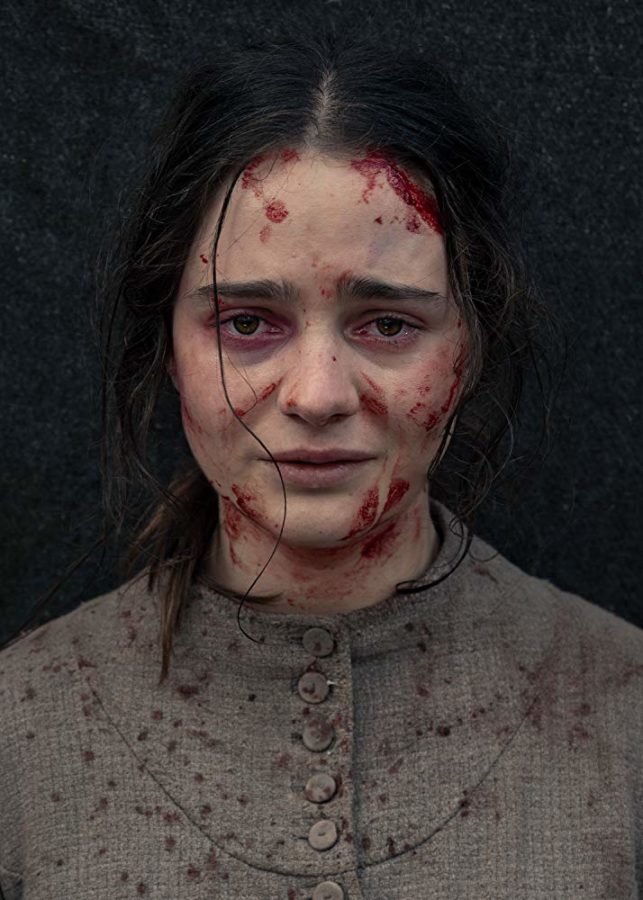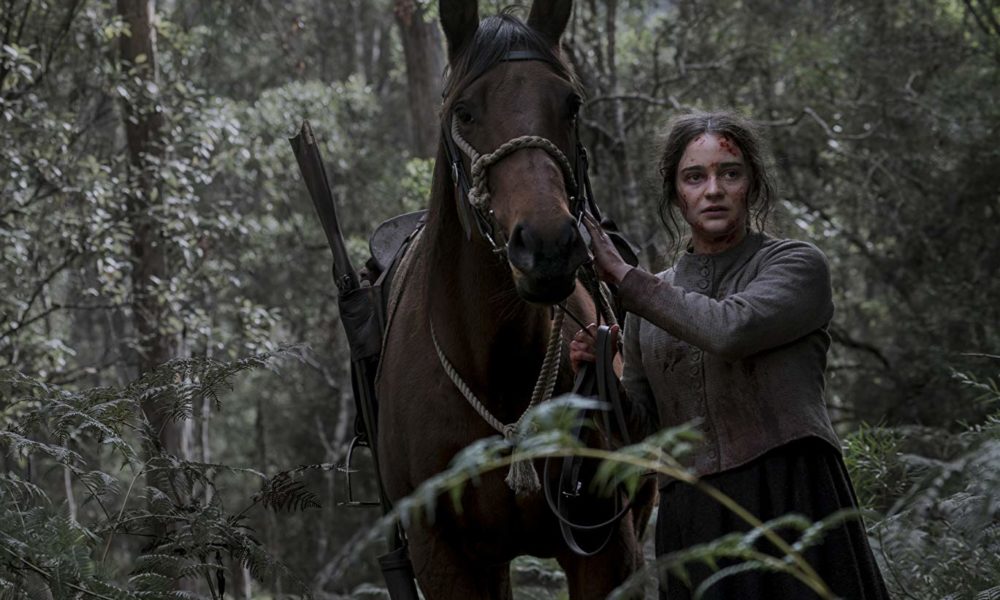“The Nightingale” is unflinchingly bleak. Writer/director Jennifer Kent subjects audiences to some of the most horrifying depictions of rape, murder and physical abuse ever committed to celluloid. Kindness is a rarity here, hope almost nonexistent. There is no reprieve from this two-hour-long death-march.
Despite this, or perhaps because of it, this tale of revenge mostly meets its mark.
Set in early 19th century Tasmania, the occupying British soldier’s menace and abuse both the Aboriginal population and the various prisoners interned on the island.
Courtesy of IFC Films
One prisoner, an Irish woman named Clare (Aisling Franciosi), is one of the only spots of light in this brutal land. Her scenes with her loving husband and new child are some of the only moments of levity, and the contrast of their love compared to what surrounds them makes the inevitable brutality even more harrowing.
Despite having served her sentence, the sadistic officer in charge, Lt. Hawkins (Sam Claflin), is preventing her freedom because of his infatuation with her.
When Hawkins is passed over for a promotion, he takes out his anger on his soldiers, who he perceives as responsible for his failure, before turning to Clare and her family.
The scene is stomach-churning. Hawkins and his soldiers’ brutality is perversely casual, contrasting with Clare’s horror and pain. After leaving Clare for dead, Hawkins departs through the bush with a cadre of prisoners and soldiers to beg for his promotion in person.
Left hopeless and alone, most likely to be executed if captured, Clare arms herself and sets off to kill them.

Much of the film is about cycles of abuse. Hawkins abuses his higher-ranking officers, who abuse the enlisted men, who in turn abuse the prisoners and Aboriginal people.
This is echoed by Clare who, in her ensuing quest for revenge, berates and demeans Billy (Baykali Ganambarr), an Aboriginal guide whose family was slaughtered by the British.
The majority of the film happens in this inhospitable journey, where Kent’s direction and writing shine the brightest.
Rather than devolving into a broadly painted revenge fantasy, Kent instead frames Clare and Billy’s relationship with subtlety and nuance. This is aided by exceptional camerawork that shows the wilderness both savagely and beautifully, and develops Clare and Billy’s relationship organically, avoiding the tired tropes of lesser films.
Kent takes her time, and while a film like this certainly needs to breathe it, unfortunately, kills the pacing at points. There are a few too many establishing shots, a few too many scenes of people walking through the wilderness and a few too many dream sequences. These dream sequences stick out like a sore thumb, abandoning the subtlety and artistry of what came before. These scenes are blunt, broad, cheesy asides that serve little purpose other than to highlight Clare’s pain and guilt, elements made abundantly clear elsewhere.
The final act in particular, while experimental and artistic, grinds everything to a halt for the final 40 minutes of the film while simultaneously draining all tension from the movie.
This is such a shame because there is a brilliant hour and a half long film buried here, and while the final scene is powerful, beautiful and thematically complex, the road to it lessens its impact considerably.




